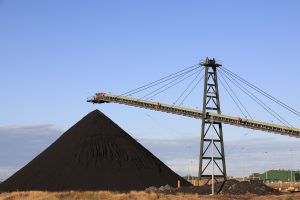Twenty Pacific climate activists have travelled to Tonga for the Pacific Islands Forum Leaders Meeting, where leaders will deliberate on the region’s most pressing issues. This year’s meeting, from August 26 to 30, will be held against a backdrop of sovereignty struggles, socioeconomic threats, and ever-increasing climate disasters. Of the 18 Pacific Island Forum countries, Australia and New Zealand are founding members, with significant political sway on the meeting’s outcomes.
For this reason, I have returned to my home country of Tonga, with four other young Pacific Island Australians as part of the Pacific Climate Warriors. We are a youth-led grassroots network tackling the impacts of climate change, while also trying to mobilize Pacific communities to be a part of the renewable energy transition. While many of these communities are in Pacific Island countries, some of them are also in the western suburbs of Sydney and the southern districts of Brisbane.
As Pacific diaspora, we live in the duality of concern for our island homes with the agency as voting citizens living in the world’s third largest fossil fuel exporting nation. How do you grapple with the erosion of your ancestral island when your current home feeds the impending wave threatening shorelines?
A recent report revealed that in 2021, Australia was the third largest exporter of primary fossil fuels after Russia and the United States, but the second largest when it comes to emissions, given the large proportion of emissions-intensive coal exports. Every tonne of coal exported from Australia exports climate catastrophe to the Pacific. Every new gas field robs First Nations communities in Australia of land and water. We carry this awareness as we return to our island homes, where the Albanese government’s foreign policies carry notable weight with Pacific regional decisions.
At the same time, it is important to acknowledge that Australia has contributed $100 million to the Pacific Resilience Facility, a groundbreaking climate finance mechanism that will be a major priority in discussions this week. But as a key member of the Pacific Islands Forum, it is crucial that Australia not drill holes in the proverbial bucket that they are helping our islands fill. To continue the extraction and export of coal and gas is to make the financial burden of Pacific climate resilience heavier and harder to bear.
And resilience is not just recovery. Walking down Taufa’ahau Road in the aftermath of Cyclone Gita in 2018, I saw a common scene among the devastation of Tongan households: Families and neighbors, huddled around a single portable battery, charging cell phones to find out if their loved ones made it through the storm. It was clear then that resilience also means energy security, economic prosperity, and the ability to build back better. While leaders deliberate the Pacific’s ability to face the climate crisis, the overhanging dream of a just energy transition sits within our grasp. Australia’s support in the realization of this goal will be crucial, as they set themselves up to be a renewable energy leader and potential hosts of COP31.
So as my island home plays host to the region’s most crucial diplomatic deliberations, my adopted home of Australia has much to do to be considered a true climate leader and Pacific “big brother.” The sentiment of a regional family is honorable, but in the Pacific, true kinship is built on the needs of many over the needs of one. And the Pacific needs an ocean-wide phase out of fossil fuels and a doorway into the just energy transition for our islands to survive.































